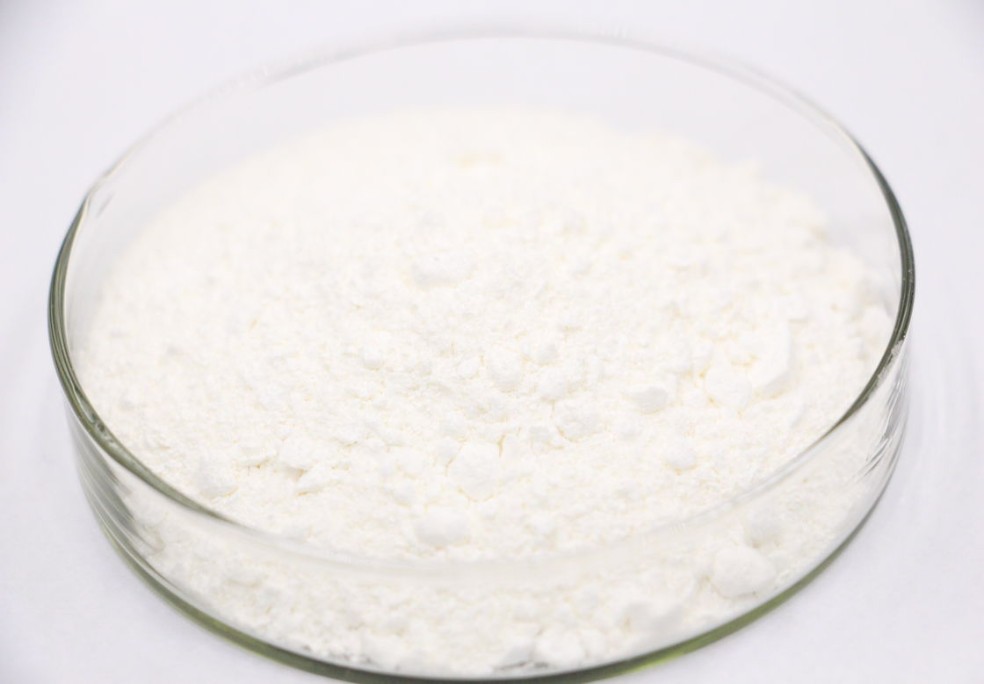Product Name:Tacrolimus
Purity: 99%
CAS: 104987-11-3
MF: C44H69NO12
MW: 804.02
Appearance: White powder
Storage: Store in a cool, dry place. Away from the light, heat and moisture.
Tacrolimus, also known as fujimycin, is an immunosuppressive drug used mainly after allogeneic organ transplant to lower the risk of organ rejection. It achieves this by inhibiting the production of interleukin-2, a molecule that promotes the development and proliferation of T cells, which are vital to the body’s learned (or adaptive) immune response.
Tacrolimus is also used in the treatment of other T cell-mediated diseases such as eczema (for which it is applied to the skin in a medicated ointment), severe refractory uveitis after bone marrow transplants, exacerbations of minimal change disease, Kimura’s disease, and the skin condition vitiligo.
Tacrolimus is used together with other medicines to prevent the body from rejecting a transplanted organ. This medicine may be used with steroids, azathioprine, basiliximab, or mycophenolate mofetil. Tacrolimus belongs to a group of medicines known as immunosuppressive agents.
Tacrolimus is a very strong medicine. It can cause side effects that can be very serious, such as kidney problems. It may also decrease the body's ability to fight infections. You and your doctor should talk about the benefits of this medicine as well as the risks of using it. Tacroz Forte Ointment (Tacrolimus) is used to treat atopic dermatitis (more commonly known as eczema). It is a topical medication which is normally prescribed for patients who have not responded successfully to other eczema medication.
The ointment is a type of topical calcineurin inhibitor (TCIs) that works by weakening the patient`s immune system, which as a consequence directly reduces the severity of eczema and its symptoms. It should not be used by patients who have any kind of weak immune system.
| Items of analysis |
Specification |
Results |
| Description |
white to faint yellow,practically odorless,crystalline powder.Slowly oxidizes and acquires a blue color,on prolonged exposure to air. |
white,odorless crystalline powder.slowly oxidizes and acquires a blue color,on proplonged exposure to air. |
| solubility |
freely soluble in water,in hot dehydrated alcohol and in chloroform.practically insoluble in ether,in acetone and in ethyl acetate |
freely soluble in water,in hot dehydrated alcohol and in chloroform.practically insoluble in ether,in acetone and in ethyl acetate. |
| completeness and clarity of solution |
a solution of 1 in 10 in water,and 1 in 10 in chloroform shall be practically clear and shows not more than a light yellow colour. |
clear and colourless |
| Identification |
|
|
| A.IR absorption spectrum |
the positions and relative sizes of the bands in the spectrum of the sample and reference shall be concordant |
the positions and relative sizes of the bands in the spectrum of the sample and reference spectrum are concordant |
| B.test for chlorides |
shall comply the test |
complies |
| pH(1 in 20 solution) |
between 4.0 and 5.0 |
4.60 |
| loss on drying |
NMT 0.5% |
0.20% |
| residue on ignition |
NMT 0.1% |
0.03% |
| bacterial endotoxin |
NMT 6.9 EU/mg |
less than 6.9 EU/mg |
| related substances |
|
|
| single impurity |
NMT 1.0% |
less than 1.0% |
| sum of impurities |
NMT 2.0% |
less than 2.0% |
| assay |
97.0%-101.5% |
99.9% |
| residual solvents |
|
|
| O-xylene |
ICH limit:2170 ppm |
1321 ppm |
| isopropyl alcohol |
ICH limit:5000 ppm |
969 ppm |
| microbial limits |
|
|
| total bacterial count |
NMT 1000 cfu/gm |
35 cfu/gm |
| total fungal count |
NMT 100 cfu/gm |
less than 10 cfu/gm |
| pathogens |
|
|
| E.coli |
shall be absent |
absent |
| Salmonella |
shall be absent |
absent |
| pseudomonas |
shall be absent |
absent |
| staphylococcus |
shall be absent |
absent |
| Conclusion |
Qualified |






















